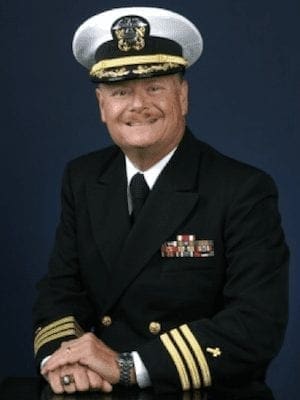I am one of 22 million veterans who comprise 1.3 percent of the population of the United States.
Most of us have served in times of war. Today, the largest number of living veterans served in Vietnam, followed closely by those of us who served in one or both of the Gulf Wars.
I’m also a minister serving as a pastor of a church following nearly 23 years as a Navy chaplain.
As a Christian who is a proud American, I am always honored and thoughtful in addressing my fellow Christians.
The opinions of some regarding veterans, especially as their issues interact with the Christian community, are too often ill-informed and sometimes oppositional to the actual truth.
What can we do as Christian people for the veterans among us? Let’s start with the truth.
The honest truth is that while we are glad to have offered service to the country we love, we are often misunderstood in the Christian community. Certain myths about our military service and our attitudes do not reflect reality.
Some perceptions of Christian veterans can even be offensive. Most of the time, when these myths are articulated or implied, we will smile and even say thanks, but inside we wish that our fellow followers of the Prince of Peace might know the truth.
Among the myths about veterans we routinely encounter I have listed a few:
Myth 1: We support and defend the president.
Though the president is the commander in chief, nowhere does the military officer oath indicate allegiance to the president as the fundamental value.
The actual oath sworn by officers is this: “I do solemnly swear that I will support and defend the Constitution of the United States against all enemies, foreign and domestic; that I will bear true faith and allegiance to the same; that I take this obligation freely, without any mental reservation or purpose of evasion; and that I will well and faithfully discharge the duties of the office on which I am about to enter. So help me God.”
Military officers support and defend the Constitution. The president’s role is defined by the Constitution.
Some believe that obedience to the president is the ultimate loyalty requiring something resembling cult-like deference. That is not so.
Military members belong to every conceivable political party and vote their conscious. They are to obey the orders given by the commander in chief but the obligation before God is to defend the Constitution.
It is an important distinction. No one should confuse military service with political loyalty.
Myth 2: We are inclined toward war.
I have lost friends and seen others forever scarred by war. Most veterans can tell similar stories. Typically, no one abhors war more than the veteran.
Hawkish tendencies on display in our society seldom correlate with actual military service. Many vets are concerned that those making the decisions for war should pause long enough to consider the advice of those who know all too well the realities of war.
Furthermore, as veterans who claim to follow Christ, we claim a religious tradition that is pacifistic or restricts the conduct of war to rigorous “just war” principles. In both of these historical Christian positions, diplomacy should always be our first refuge when tensions arise between nations.
Myth 3: We worship the flag.
Flag protocols are well established in the military. They should not be confused with a form of idolatry; the symbol is not the substance.
Instead, the flag represents the idea that this is a nation that preserves and protects the freedoms of the individual. Among those freedoms is the freedom of speech.
Peaceful protest is as American as apple pie. Veterans know that when we salute the flag, we honor the freedoms guaranteed in the Constitution and the Bill of Rights. Even if we do not agree with the protest, we have obligated our very lives to defend the right to protest.
The claim that peaceful protest involving the flag equals an insult toward the military is incorrect.
Myth 4: We are honored by martial displays at church.
Rousing “patriotic” displays within worship offend me.
I have seen weapons paraded into a worship service, accompanied by martial music. Then the national ensign is set in a dominant position even over the symbolic representations of our faith.
It is truly hard for Christian veterans to verbalize how uncomfortable that makes us feel. We love our country, but our faith in Christ is bigger than our country; it is more than our patriotism.
It is fine to acknowledge our nation, but in church the Kingdom of God must be our highest duty.
Keep these thoughts in mind as you encounter us veterans at church who love their country but worship only the King of Kings.
Charles McGathy has been pastor of First Baptist Church of Madison, North Carolina, for 11 years. Prior to that he served as a Navy chaplain for 23 years.
Editor’s note: This is the third article in a three-part series for Veterans’ Day 2017. The previous articles are:
10 Suggestions to Help Your Church Honor Veterans by Barry Howard
How to Honor Veterans in Christ-Centered Worship by Meredith Stone
Commander Charles “Chuck” McGathy served in the Chaplain Corps of the United States Navy for 23 years. He has been the pastor of First Baptist Church of Madison, North Carolina, since 2006.

